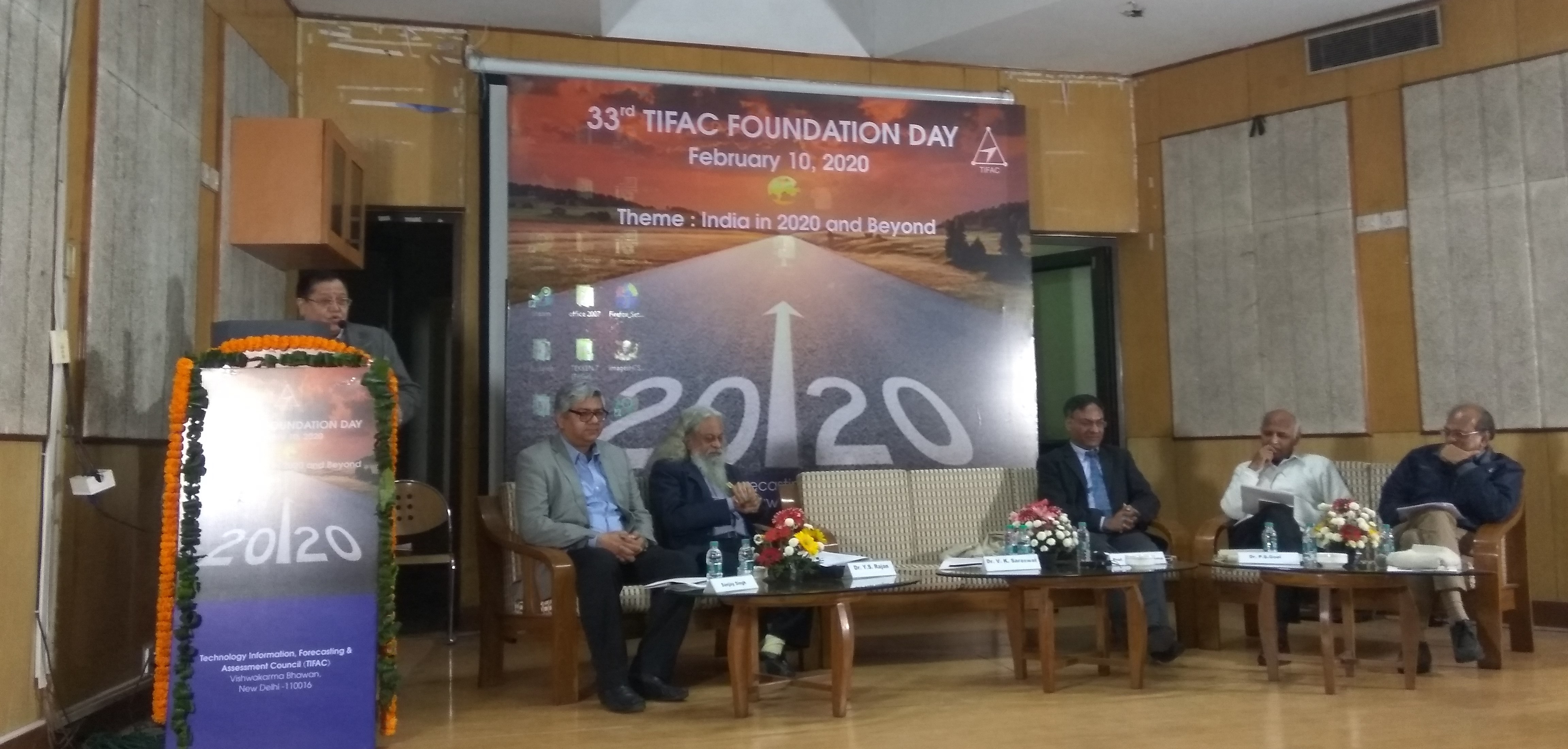Technology Information, Forecasting and Assessment Council (TIFAC), an autonomous organization of the Department of Science & Technology (DST) celebrated its 33rd foundation day on February 10, 2020, highlighting the role of technology in increasing efficiency and sustainability, in its discussions on India 2020 and beyond.
DST Secretary Professor Ashutosh Sharma, in his keynote address, emphasised that as changes occur at an unprecedented rate, technology should be an enabler in finding solutions for future challenges like sustainability, environment, climate & so on.
“As a think tank, TIFAC should focus on how to manage the technology to create new opportunities & also prepare a robust road map to create skilled manpower,” he added.
“As consumption rises, we need 100 % efficiency as well as policies, laws, regulation, governance, and scientific thinking to go along with it. While managing technology, we also have to manage lights and shadows of technologies,” Professor Sharma pointed out.

Professor V K Saraswat, Chairman Governing Council, TIFAC, and Member, NITI Aayog in his inaugural address emphasised that technology for tomorrow should focus on the circular economy, inclusive growth, sustainable development and achievement of Sustainable Development Goals (SDGs).
Dr. Saraswat said that TIFAC could bridge the gap between the institution, education, and industry and also stressed on ensuring that technology reaches the last mile of the society.
The Foundation Day lecture was delivered by Dr. Y S Rajan, former Executive Director, TIFAC. Dr. Y S Ranjan elaborated on the progress and growth of TIFAC from its initial days to a major think tank today and shared his thoughts on the way ahead for technology visions. He also talked about how TIFAC has brought together thousands of academic and industry experts as well as stakeholders from the government and civil societies to build a vision for a developed India under the leadership of former President Dr. APJ Abdul Kalam, the then Chairman-TIFAC.
This vision is popularly known as Technology Vision 2020, which was the first mega technology vision exercise in India. Technology Vision 2020 exercise led to a set of 17 documents, including sixteen technology areas and one on services. In more than 25 years of its service to the nation, it has delivered a number of technology assessment and foresight reports.
TIFAC has prepared the Technology Vision 2035, capturing the aspirations of Indians, and this Vision 2035 was released by Prime Minister Shri Narendra Modi while inaugurating the 103rd Indian Science Congress in Mysuru in 2016. This is being followed currently by release of Technology Roadmaps in 12 thematic areas of national priorities and importance.
Therese areas of national priorities and importance include Education, Medical Science & Health Care, Food and Agriculture, Water, Energy, Environment, Habitat, Transportation, Infrastructure, Manufacturing, Materials and Information & Communication Technologies (ICT).
Scientists from TIFAC also made some short presentations on various reports of TIFAC on this occasion.






























